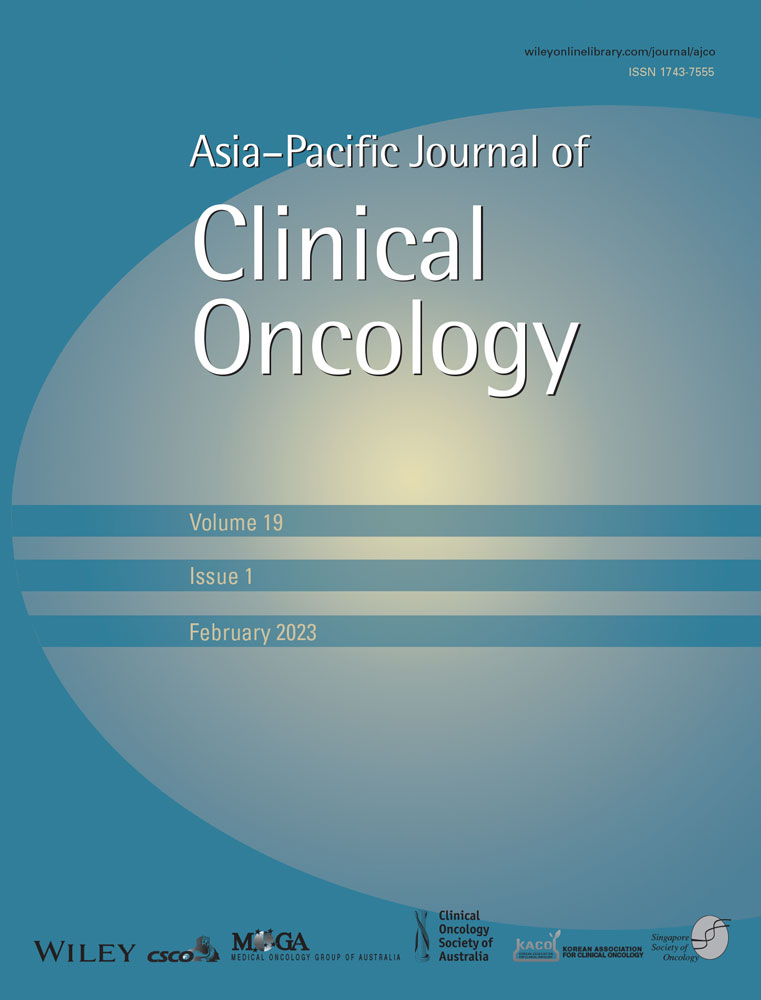Real-world evidence of cisplatin versus carboplatin in patients with locally advanced nasopharyngeal carcinoma receiving concurrent chemoradiotherapy: A multicenter analysis
Funding information: Government Research Grant #3484, Grant/Award Number: #6908; Thailand Grand ChallengeProgramforResearchUniversity Network (RUN); National Research Council of Thailand; National Research Council of Thailand (NRCT)Thailand Grand Challenge Programfor Research University Network (RUN), Grant/Award Number: 6908
Abstract
Background
Though concurrent chemoradiotherapy (CCRT) with cisplatin remains a standard of care for patients with locally advanced nasopharyngeal carcinoma (LA-NPC), carboplatin has alternatively been used without sufficient supportive evidences. Thus, we evaluated an efficacy and tolerability of carboplatin CCRT compared with cisplatin in LA-NPC patients.
Methods
Patients with LA-NPC treated with CCRT were identified through the Thai multicenter head and neck cancer database. Patient tolerability and survival were analyzed and compared between regimens. Survivals were calculated by using the Kaplan–Meier method, and compared by the log-rank test. A p-value of <0.05 was considered statistically significant.
Results
A total of 135 of 980 patients (13.8%) were treated with carboplatin. Patients treated with carboplatin were significantly associated with older age (p < 0.001), smoking (p = 0.003), more comorbidity (p = 0.014), kidney disease (p = 0.016), and lower baseline creatinine clearance (p < 0.001). Intensity-modulated radiation therapy was used significantly more in the cisplatin group than carboplatin group (p < 0.001). Patients who received carboplatin were associated with delay (p = 0.049) and hospitalization (p = 0.006), whereas cisplatin CCRT had more dose reduction (p = 0.001). Patients treated with cisplatin had CCRT interruption from grade 3–4 mucositis (p = 0.019) more than carboplatin, whereas carboplatin had more grade 3–4 thrombocytopenia (p < 0.001). The 5-year overall survival (OS) of patients treated with cisplatin and carboplatin was 59% and 49%, respectively (p = 0.128). Cisplatin or carboplatin CCRT was not a significant predictor for OS and locoregional recurrence-free survival in multivariate analysis.
Conclusions
Carboplatin CCRT provided acceptable efficacy and tolerability profiles in real-world practice. Carboplatin should be considered as an alternative regimen, particularly in cisplatin-ineligible patients with LA-NPC treated with CCRT.
CONFLICT OF INTEREST
The authors declare no conflict of interest.
Open Research
DATA AVAILABILITY STATEMENT
The data that support the findings of this study are available on request from the corresponding author. The data are not publicly available due to privacy or ethical restrictions.




